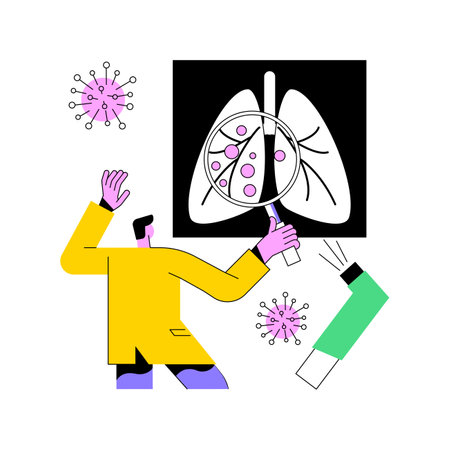1. The Importance of Mental Stimulation in Geriatric Rehabilitation
When we talk about geriatric rehabilitation, most people think about physical therapy and exercises to improve strength and balance. However, keeping the mind active is just as important as working out the body. Engaging in activities and brain games that challenge memory and thinking skills can make a big difference in how older adults recover and thrive during rehab.
Why Does Mental Stimulation Matter?
For seniors going through rehabilitation, mental stimulation helps keep their brains sharp. It’s not only about remembering names or dates—mental engagement impacts mood, confidence, and the ability to handle daily tasks. Regular cognitive activity supports:
- Memory: Brain games help reinforce short-term and long-term memory, making it easier for seniors to recall information and follow therapy instructions.
- Mood: Fun and engaging activities can lift spirits, reduce feelings of loneliness, and even lower anxiety or depression.
- Daily Functioning: Thinking skills are essential for managing medication, cooking meals, or simply enjoying conversations with friends and family.
Benefits of Cognitive Engagement in Rehab
| Benefit | Description | Example Activities |
|---|---|---|
| Improved Memory | Keeps the brain active and supports better recall | Puzzle games, trivia, word searches |
| Enhanced Mood | Makes rehab more enjoyable, reduces stress | Group board games, music quizzes |
| Greater Independence | Helps maintain skills needed for daily living | Cooking together, matching games with everyday objects |
| Social Connection | Encourages interaction with others during activities | Bingo, storytelling sessions, team-based games |
The Role of Brain Games in American Rehab Settings
In many American rehab centers and senior communities, you’ll find group game nights featuring classics like Bingo or Jeopardy-style trivia. These familiar activities are not just fun—they’re designed to get everyone involved and thinking creatively. Whether it’s a crossword puzzle with a friend or a digital brain-training app on a tablet, these activities meet older adults where they are and match their interests.
Culturally Relevant Engagement Ideas for U.S. Seniors:
- Playing card games like Bridge or Rummy with peers
- Singing along to classic American hits from the 50s and 60s
- Participating in storytelling circles about personal history or American traditions
- Using technology (like tablets) for memory apps tailored to U.S. culture and language
This blend of traditional and modern approaches ensures that cognitive engagement is meaningful and enjoyable for older adults in rehabilitation across the United States.
2. Culturally Relevant Activities for American Seniors
Classic American Pastimes to Stimulate Memory
Engaging seniors with familiar activities rooted in American culture helps make cognitive rehabilitation more meaningful and enjoyable. Many traditional games and activities not only entertain but also stimulate memory, attention, and social connections. Here are some culturally relevant ideas that can be easily incorporated into geriatric rehabilitation programs.
Popular Games and Activities
| Activity | Description | Cognitive Benefits |
|---|---|---|
| Classic Card Games (e.g., Bridge, Rummy) | Seniors play well-known card games individually or in groups, recalling rules and strategies. | Improves memory, concentration, and social interaction. |
| U.S. History Trivia | Questions focus on important events, presidents, or cultural milestones in American history. | Boosts recall of long-term memories and enhances learning. |
| Group Storytelling | Seniors take turns adding to a story based on shared experiences or prompts about American life. | Encourages creativity, verbal skills, and reminiscence. |
| Bingo with American Themes | Bingo cards feature states, landmarks, or patriotic symbols instead of numbers. | Supports attention, pattern recognition, and cultural connection. |
Why These Activities Work Well
American seniors often have fond memories tied to these pastimes. Playing card games at family gatherings, watching historical events unfold on TV, or sharing stories around the dinner table are all familiar experiences. By incorporating these elements into brain games and group activities, therapists can help seniors feel comfortable and engaged while also working on important cognitive skills.
Tips for Successful Implementation
- Personalize the Experience: Use trivia questions from the era when participants were young adults or include local history facts from their home state.
- Encourage Group Participation: Activities like storytelling and bingo promote social bonding as well as mental stimulation.
- Adapt for All Abilities: Offer visual aids or simplified rules if needed so everyone can join in comfortably.
- Create a Welcoming Atmosphere: Play background music from classic American artists or decorate with Americana to enhance nostalgia and enjoyment.
Culturally relevant brain games not only support cognitive health but also celebrate the rich life experiences of American seniors. By choosing activities that reflect their heritage and memories, rehabilitation professionals can foster both mental sharpness and emotional well-being.

3. Technology-Based Brain Games and Their Role
How Digital Brain Games Support Cognitive Health
With the rise of smartphones and tablets, technology-based brain games have become popular tools for boosting memory and cognitive skills in geriatric rehabilitation. These digital games offer fun, interactive ways for older adults to keep their minds sharp from the comfort of home or during therapy sessions.
Popular Apps Used in the U.S.
Several apps stand out in the United States for their accessibility and effectiveness. Here’s a quick overview:
| App Name | Main Features | Why It’s Popular |
|---|---|---|
| Lumosity | Puzzle games, memory tasks, problem-solving challenges | User-friendly interface, daily training reminders, tracks progress over time |
| BrainHQ | Personalized brain exercises, speed-of-processing tasks, auditory training | Developed by neuroscientists, adapts to user ability level, used in research studies |
| Cognifit | Wide range of games targeting various cognitive abilities, assessment tools | Detailed feedback reports, social features for playing with friends and family |
| Peak | Diverse mini-games focusing on attention, mental agility, language skills | Colorful design, motivational goals and streaks, easy to navigate |
The Benefits of Technology-Based Brain Games for Older Adults
Digital brain games can be easily tailored to each person’s needs. They help older adults practice important skills like memory recall, quick thinking, attention span, and problem-solving. Many apps include features that track progress and adjust difficulty levels so users always feel challenged but not frustrated.
Tips for Getting Started with Digital Brain Games
- Choose apps with simple interfaces: Look for large buttons and clear instructions.
- Set regular play times: A daily 10–15 minute session can make a big difference over time.
- Play together: Involve family members or friends for added fun and motivation.
- Talk to your rehab team: Ask therapists to recommend specific games that match your rehab goals.
By making technology-based brain games part of daily routines, older adults in America can enjoy engaging activities that support cognitive health while having fun.
4. Social and Group-Based Cognitive Activities
Engaging in social activities is not just fun—it’s also a powerful way to keep the brain active for older adults going through rehabilitation. When people participate in group-based cognitive games and activities, they get to exercise their minds while building stronger social connections. This section explores how group activities such as bingo, book clubs, and memory cafés can benefit both memory and overall well-being.
Bingo: More Than Just a Game
Bingo is a classic American pastime that can be easily adapted for geriatric rehab settings. Besides being enjoyable, bingo encourages players to stay alert, recognize patterns, and react quickly. Calling out numbers and marking cards boosts listening skills, concentration, and hand-eye coordination—all important aspects of cognitive health. Plus, playing together brings laughter and friendly competition, making it easier for participants to connect with each other.
Book Clubs: Stimulating Minds Through Conversation
Book clubs give seniors an opportunity to read stories or articles and then discuss them with peers. This group activity encourages critical thinking, memory recall, and communication skills. By sharing personal insights or favorite parts of a story, participants engage different areas of the brain while forming meaningful bonds with others who share similar interests.
Memory Cafés: Safe Spaces for Social Interaction
Memory cafés are welcoming gatherings specifically designed for older adults experiencing memory challenges and their caregivers. These informal meet-ups often feature games, music, crafts, or themed discussions that stimulate the mind in a relaxed setting. The supportive environment helps reduce feelings of isolation while offering cognitive stimulation in a social atmosphere.
Popular Group Activities and Their Cognitive Benefits
| Activity | Cognitive Skills Targeted | Social Benefits |
|---|---|---|
| Bingo | Attention, pattern recognition, quick thinking | Encourages social interaction and teamwork |
| Book Clubs | Memory recall, comprehension, verbal expression | Promotes discussion and shared experiences |
| Memory Cafés | Cognitive flexibility, sensory engagement | Builds community support and inclusion |
| Pictionary or Charades | Visual processing, creativity, problem-solving | Sparks laughter and teamwork among participants |
Tips for Successful Group Activities:
- Create a welcoming atmosphere where everyone feels comfortable joining in.
- Select topics or games that match participants’ interests and abilities.
- Encourage participation but allow individuals to engage at their own pace.
- Mix up activities regularly to keep sessions fresh and exciting.
- Celebrate small wins—whether it’s winning at bingo or finishing a book together!
The right blend of social connection and cognitive challenge can make all the difference in geriatric rehabilitation. With activities like bingo nights, book clubs, and memory cafés, older adults can boost their brain power while enjoying the company of friends.
5. Strategies for Personalizing Cognitive Activities in Rehab
Why Personalization Matters in Geriatric Rehabilitation
No two older adults are exactly alike. In geriatric rehabilitation, personalizing cognitive activities and brain games is key to better engagement and improved memory or thinking skills. When activities match each person’s interests, background, and abilities, seniors are more likely to participate and benefit from therapy.
Tips for Choosing the Right Activities
- Know Their Interests: Ask about favorite hobbies, past jobs, or beloved traditions.
- Consider Cultural Background: Use familiar songs, stories, or games that reflect their heritage.
- Adapt to Cognitive Level: Adjust activity difficulty—start simple and add challenges as needed.
- Mix It Up: Alternate between individual and group activities for variety and social interaction.
- Stay Flexible: If something isn’t working, try a different approach or ask for feedback.
Examples of Personalized Brain Games and Activities
| Activity Type | How to Personalize | Cultural/Local Examples |
|---|---|---|
| Puzzles (jigsaw, word) | Select topics or images that match personal interests or memories | Jigsaw puzzles with American landmarks or local sports teams; word searches using familiar holiday themes |
| Reminiscence Therapy | Use photos, music, or objects from their own life story | Listening to classic country or Motown hits; sharing stories about growing up in the U.S. |
| Bingo & Board Games | Choose versions with simple rules and relatable topics | Bingo cards featuring state capitals; trivia games about U.S. history or pop culture |
| Cognitive Apps & Digital Games | Select age-friendly apps with adjustable settings | Apps like Lumosity or Words With Friends tailored for seniors’ skill levels |
| Culinary Activities | Incorporate traditional family recipes or local favorites | Baking apple pie or making chili while discussing recipe steps together |
| Storytelling & Group Discussion | Create prompts around their hometowns or favorite American traditions | Telling stories about Thanksgiving celebrations or summer road trips across the country |
Simple Steps to Adapt Any Activity
- Observe: Watch how the person responds—are they engaged or frustrated?
- Simplify: Break down tasks into smaller steps if needed.
- Add Familiarity: Use familiar items, places, songs, or phrases.
- Encourage Participation: Offer choices so they feel involved in selecting activities.
- Celebrate Successes: Praise effort and improvement—every small win counts!
The Takeaway: Make It Meaningful and Fun!
The best brain games and memory activities are those that feel meaningful and enjoyable to each individual. By considering personal preferences, cultural identity, and cognitive abilities, therapists and caregivers can create engaging rehabilitation experiences that boost confidence and support recovery.


